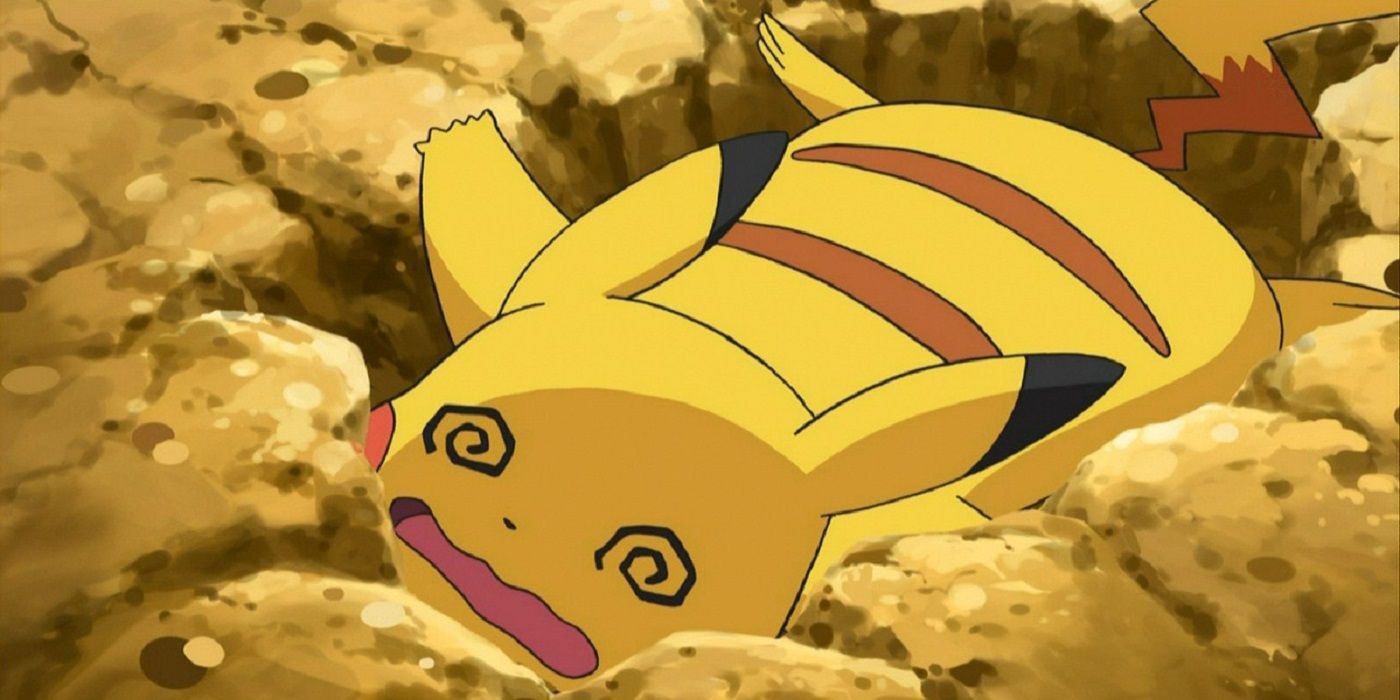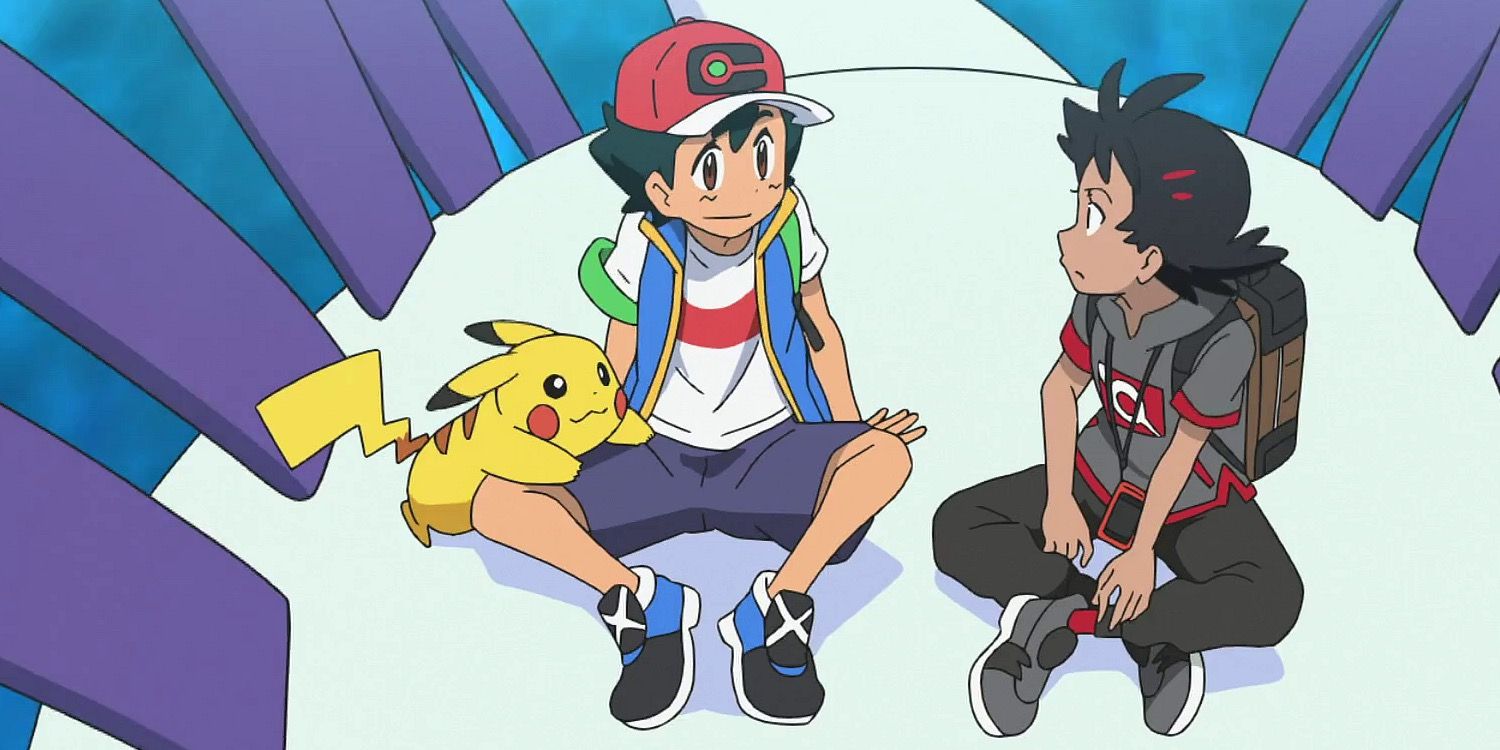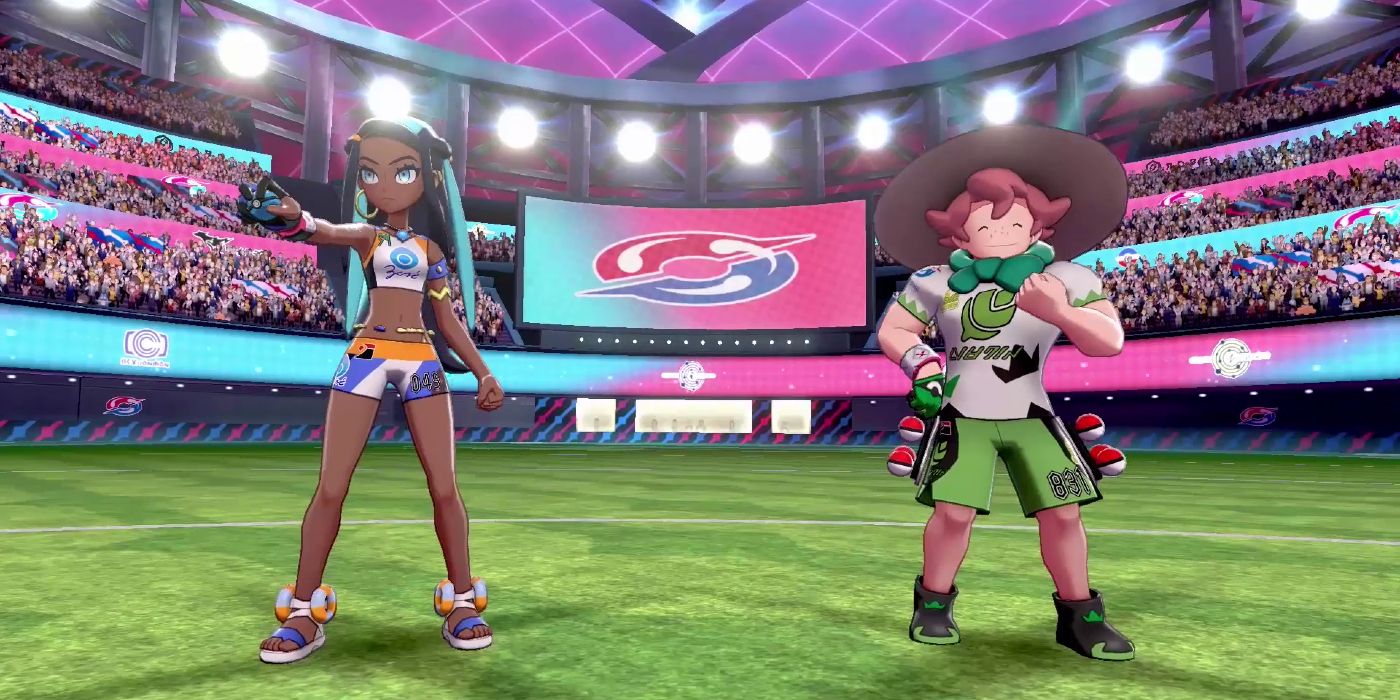Battling is one of the biggest parts of being a trainer in the Pokémon series. Between facing off against other trainers, battling Gym Leaders, and entering the Championship Leagues or taking on the Elite Four, battling has played a key role both in the Pokémon games, and the Pokémon animated series. However, some may question how ethical it is for young trainers to befriend partners, only to have them taking blows to show their growth and development. Despite how it may seem, Pokémon battles aren't one-sided, making the responsibility of battle risks a shared burden between Pokémon and trainer.
In Pokémon battles, two or more trainers go up against each other, calling on different members of their team in a contest of strength, endurance, and strategy. Because these battles go until all of a trainer’s Pokémon are physically unable to continue, it may seem like they’re pushing their Pokémon too far, especially when trainers could choose to stop before their Pokémon is rendered unconscious. However, trainers are carefully educated both in the Pokémon anime and game series on when they need to stop, and how important it is to listen to their team members. Because of this, the intensity of Pokémon battles may not be as sinister as it seems.
The Pokémon games and anime handle the topic of battling and battle safety differently, but there is a common factor between the two. When a Pokémon and its trainer enter a battle, it is usually consensual on both sides. Pokémon appear to have an innate desire to compete against each other, and when they form a partnership with a trainer, they act as a team, building battle strategies together and sharing the potential risks that go with battling. Pokémon have been shown to refuse to battle or listen when they don't feel their trainers are skilled enough to make good calls, or don't want to engage in the situation, meaning, in most instances, a Pokémon enters a battle of its own free will.
Pokémon Battle Ethics In The Animated Series
The Pokémon animated series shows many examples of how trainer and Pokémon relationships should and shouldn't work. The consent involved in these bonds is often shown right from the start of a relationship, when the trainer captures a new Pokémon. In cases like Ash and Pikachu, Ash must learn to understand Pikachu before it is willing to battle with him. In Pokémon the Movie: I Choose You, Pikachu refuses to battle a Spearow for Ash, whom Pikachu hasn't yet seen as a fit trainer. This can also be seen during Indigo League, when Ash's Charmeleon no longer wants to listen to him after evolving. Instead of trying to force the unwilling Pokémon to battle, Ash is frustrated but never crosses the line of consent for his Pokémon. The reverse is seen in Pokémon X and Y, when Ash meets Froakie, who immediately sees in Ash a strong partner it wants to work with. Ash often captures Pokémon on his team in this fashion, befriending them first, and then becoming their trainer after extending an invitation.
The animated series also shows examples of damaging or abusive partnerships. During I Choose You, Ash encounters a young trainer named Cross. He has abandoned his Charmander in the rain in favor of what he believes are superior Pokémon. He sees his Pokémon as a way to assert power over others and believes strength in battle is the only quality that matters. Cross regularly pushes his Inceneroar and Lycanroc past their limits, and Ash and his friends explain in narration how this violates the nature of proper Pokémon battles. Ash states Pokémon partnerships should first and foremost be about making new friends, which is a moral he also iterates on in the Pokémon anime series.
Pokémon Battle Ethics In The Game Series
The Pokémon main game series portrays the relationship between Pokémon and trainer differently, but with similar ethics in place. Pokémon are harder to catch the more powerful they are, which is a way for the game to portray the need for experience to work alongside these more powerful, difficult partners. Pokémon also only obey their trainer if they are under the level currently unlocked through Gym Badges. Each Gym Badge earned raises the base level a player can control, showing the growth of both of a player's character, and the Pokémon they travel with. Pokémon who build friendship levels with their trainers are also more likely to avoid attacks, deliver critical blows, or hang on by a single HP point when hit with a super-effective move, to show how deep their bond with their trainer goes. Friendship levels are built in a variety of ways depending on the game, including petting and interacting with Pokémon, catching them in special Pokéballs, and traveling with them. The more effort a player puts into the relationship, the more their Pokémon trusts them on the battlefield.
While it isn't possible to abuse a Pokémon in the game series, NPCs regularly explain the importance of the bond between a trainer and their Pokémon and put emphasis on battling as a team event. In the Pokémon games with Elite Four challenges, the Pokémon themselves also make it into the Hall of Fame, and not just the Player's name. Whether in the show or the games, the Pokémon series puts an emphasis on the importance of teamwork, and how a Pokémon journey isn't just about the trainer's growth, but the strength found when working together as a team to succeed at any challenges, great or small. Because the Pokémon series goes to such lengths to educate players on the importance of consent, safety, and teamwork, Pokémon battles can be deemed perfectly safe and ethical to engage in.



